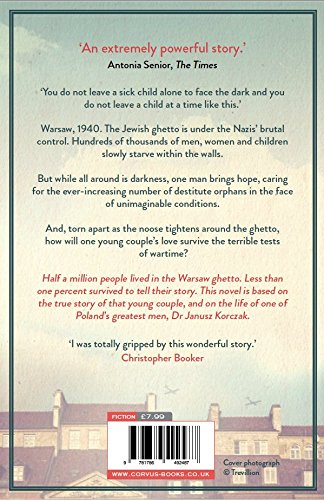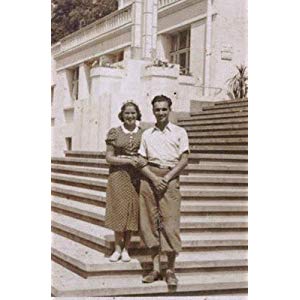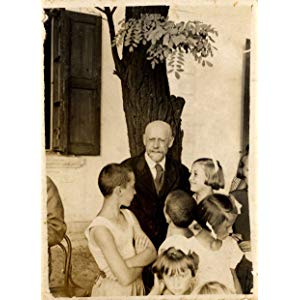A Light In The Darkness

The Good Doctor Of Warsaw by Elisabeth Gifford is a powerful true story of Dr Janusz Korczak and his love and care of children in his Warsaw orphanage during World War II.
This is a harrowing read and not for the faint hearted. Elisabeth Gifford tells it as it was and life in the Warsaw ghetto under the Nazis was horrendous. I am sure that the horrors described were even more horrific in reality as we ‘see’ man’s inhumanity to man. Through it all, Dr Korczak believed that deep down even then Nazis must have a heart, sadly he was proved wrong. The Nazis were a systematic killing machine, operating with brutality and efficiency. They never saw the individual.
Dr Korczak always believed in the rights of children to be cared for, loved and safe. A decorated war hero from World War I, Dr Korczak lectured and wrote about the need for children’s rights until the Nazis stripped him of his rights as he was Jewish. It always seems so awful that you can be good enough to fight in one war but not good enough to be seen in another.
Dr Korczak could not abandon the children in his care and transferred his orphanage to inside the ghetto. Far from abandoning children, he ended up overseeing four thousand children in the ghetto. “His orphanage is … a little oasis.” Whenever Dr Korczak saw a child in trouble, he rescued them. “Korczak… represents: justice, kindness, fairness and love. He is their candle held up against the darkness, the gleam of sunshine that makes the ghetto smile.” Even when given a chance to escape the transport to Treblinka, Dr Korczak would not abandon his children. “You do not leave a child alone to face the dark.”
Within the novel there are other brave souls who worked within and outside the ghetto to help the children and others to survive. Their bravery is incredible. Their love for others is beautiful. In his diary Dr Korczak wrote “It is not in me to hate.”
Elisabeth Gifford pulls no punches. This is not a pleasant read but it is a necessary one. We need to know about the bravery and the love shining in very dark times. Incidentally statistics tell us that “of 400,000 Jews in Warsaw before the war, only one per cent survived. Within just fourteen months in operation Treblinka gassed 900,000.”
Thank you Elisabeth Gifford for telling the world about Dr Korczak. May we never forget the innocents who perished in the Holocaust.
I will leave you with a very powerful quote:
“Even a small candle is stronger than the darkness… we must never stop believing that every act of kindness is stronger than the dark.”
JULIA WILSON

Info From The Publisher On Amazon UK
Historical Background
The Warsaw Ghetto was established in April 1940 and became the largest of its kind throughout Europe with more than 400,000 Jews imprisoned there. Rationing and rules were implemented, isolating Jews from the rest of Warsaw and leaving them with little food. Amongst those situated in the Ghetto was Dr Janusz Korczak, a Jewish-Polish Dr Barnardo famous in Poland for his children’s books and radio broadcasts. He is the inspiration behind The Good Doctor of Warsaw. Made from the stuff of legends, his tale is heart-breaking, shocking, but ultimately an uplifting reminder of the good in humanity.
The true love story of his co-workers Misha and Sophia Wroblewski was told to the author, Elisabeth Gifford, by their son Roman in interviews that have taken place over several years. Only 1%survived the ghetto to bear witness and this is a story that must be shared with generations to come, along with Korczak’s message of empathy and justice even in the face of evil.


